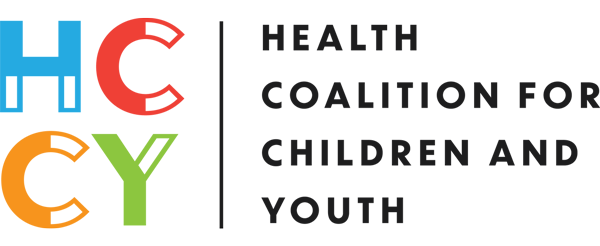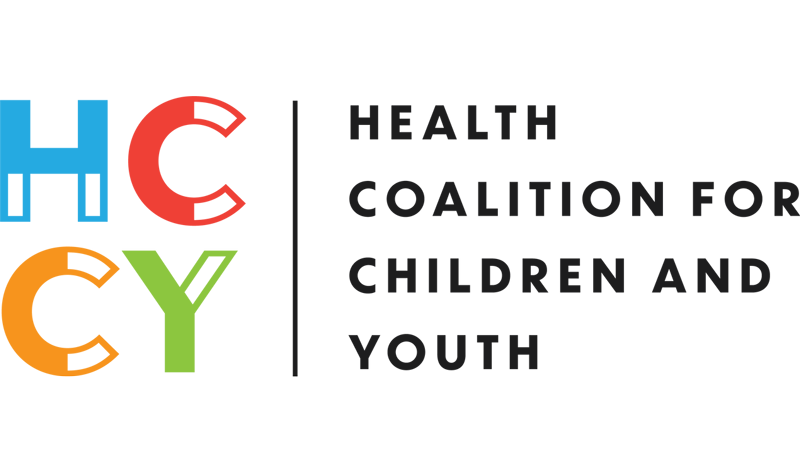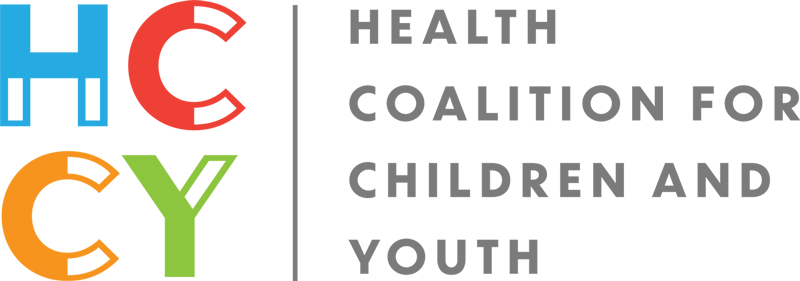
HCCY Washington State Priorities
Our broad-based coalition of child health and wellness stakeholders proposes state policy enhancements and investments to help launch children into a brighter, healthier, and more productive future which includes the human, environmental and systemic supports they need. We advocate first and foremost for the protection and preservation of all existing state health and wellness services for children and youth. In addition, we advocate for the following Lead and Support priorities to help young Washingtonians launch:
2024 Coalition Lead Priorities
The Children and Youth Behavioral Health Workgroup (CYHBWG) was established by the legislature in 2016 and focuses on families in the perinatal stage and children, youth, and young adults ages birth to 25 years. Every year since its inception the members of the workgroup adopt a set of policy recommendations to submit to the Governor and legislature for consideration. Most of the workgroup priorities are adopted each legislative session. There is a long road ahead to fully address the crisis but in the meantime advancing the priorities of the CYBHWG does help make iterative improvements possible.
We propose supporting the following recommendations of the (CYBHWG):
- Overarching: Update on House Bill 1890 (2022 to reflect the current work plan for the Prental-25 Behavioral Health Strategic Plan
- Finance behavioral health care coordination as performed by Community Health Workers or similar roles.
- Reduce administrative complexities in the WISe program. And ensure equitable access to and realize the intended outcomes of intensive programs serving youth and young adults with the most complex behavioral health needs (PACT, HOST, WISe, and New Journeys).
- Expansion of Early ECEAP (Early Childhood Education and Assistance Program) which serves children from birth to age 3.
- Provide school-based behavioral health funding for school districts.
- Fund House Bill 1724 stipend program for recent graduates in the behavioral health field.
- Allow funding for the Washington Health Corps Behavioral Health Program to be used for conditional scholarships (policy change only; no additional funds needed).
- Deliver and sustain approved funding for BH 360 (formerly Parent Portal).
- Improve student access to mental health literacy education.
- Certified Community Behavioral Health (CBHC) bridge funding.
- Increase investment in Infant and Early Childhood Mental Health Consultation (IECMH-C).
- Enable public access to behavioral health workforce data.
2024 Coalition Support Priorities
Anaphylaxis is a life-threatening allergic reaction that may involve the entire body. Food is the leading cause of anaphylaxis in children. Deaths have occurred in schools because of delays in recognizing and responding to symptoms with immediate treatment and further medical interventions (OSPI Guidelines for Care of Students with Anaphylaxis).
HB 1608 addresses the inequitable access to anaphylaxis medications (epinephrine) in schools by expanding access to it. Currently, schools are permitted to maintain a supply of this medication for all students. However, barriers exist that prevent schools from maintaining this supply such that only students with a prescription may have access to life-saving anaphylaxis medications.
HB 1608 allows the Secretary of the Department of Health to issue a statewide “standing order” to any school district or school to maintain a supply of this medication.
Building on the funds invested in the 2023 budget, we support immigrant health access in the form of:
- Additional Medicaid-like program funding to allow coverage for at least 25,000 people.
- At least $3M of funds towards integrating the expertise and services of immigrant-led community
groups. - Sufficient funding for the Health Care Authority (HCA) to develop and implement short-term and
long-term waitlist systems for the Medicaid-like program. Any waitlist system must provide public
aggregate data. - Funding of $100,000 for a HCA report to the legislature with a plan to cover all people eligible and
expected to enroll in the Medicaid-like program for the 2025-2027 biennium. - Funding of $100,000 for a Health Benefit Exchange study exploring how to resolve remaining
- Exchange affordability gaps.
MONITORING SUCCESS
Issue/Question
Notes/Answer
What do we currently know about the proposed issue and policy solution’s impact on equity? What more information do we need in order to assess its impact?
What do we currently know about the proposed issue and policy solution’s impact on equity? What more information do we need in order to assess its impact?
The Problem
Our children and youth are in the midst of a mental and behavioral health crisis. School-based health care—alongside the important services provided by school nurses, counselors, social workers and psychologists—is critical to supporting our youth’s physical and behavioral health, particularly for our most underserved students with significant barriers to care in the community.
A school-based health center (SBHC) is a student-focused health center located in or adjacent to a school where students can receive integrated medical, behavioral health, and other healthcare services such as dental care. In 2021, the legislature created the SBHC Program at the Department of Health and established a grant program to provide SBHC planning, start-up and operating grants to interested communities. The legislature also provided funding for SBHC training and technical assistance.
When DOH launched the SBHC grant program, the demand for grants far outstripped the dollars available, and interest in the program has continued to grow. Additional ongoing funding is needed to both continue supporting existing grantees, and also support new SBHC sites in interested communities. The demand for new SBHCs, and the need for sustainable SBHC funding for existing SBHCs, continue to grow significantly statewide.
The Ask
We ask the legislature to provide an additional $3.47 million in FY2025 for the school-based health center program. This funding request includes ongoing funding for the SBHC grant program to expand and sustain SBHCs, and also funding for training and technical assistance for SBHCs. This strategy is supported in the 2024 recommendations of the Children and Youth Behavioral Health Work Group.
2023 Coalition Lead Priorities
Dislodge Stuck Kids
Apple Health for Kids Reimbursement Rates
Support Partnership Access Line (PAL) and Referral Assistance Program for Children & Teens
Expand Number of School-and Community-Based Clinicians and Expand PAL in Schools Pilot Statewide
2023 Coalition Support Priorities
The profession of dental therapy was established in Washington’s federally qualified health centers (FQHCs) and lookalikes with the 2023 passage of HB 1678. Washington State Department of Health, in consultation with the Dental Quality Assurance Commission, is working on rules implementation.
For more information, please visit DOH’s dental therapy website. To sign up to receive Dental Therapy Updates, go to www.doh.wa.gov. scroll to the bottom of the page and click the button labeled “Sign up for Updates from DOH.” Once you register, select (+) “Health Systems Quality Assurance (HSQA)”, (+) “Health Professions”, then select the profession(s) for which you would like to subscribe.
For over a decade, public health systems have primarily been funded at the local level, leading to chronic underfunding of essential programs that protect families and communities. Many organizations have come together to urge the state to fund these foundational public health services. While there were several small investments over the years, the COVID-19 pandemic highlighted the cracks in the systems due to chronic underfunding in Washington governmental public health systems.
During the 2023 session, the legislature allocated an ongoing $324 million per biennium to fund these critical public health services. This funding is already making a huge difference in the way the governmental public health system can serve families and communities.
In 2023, the Washington budget included the launch of two health coverage programs to expand immigrant access beginning in 2024.
- In November 2023, all Washingtonians will be able to purchase health and dental plans on WaHealthPlanFinder.org for coverage beginning in January 2024; state subsidies will be available for people up to 250% FPL regardless of immigration status
- In July 2024, Apple Health coverage will open for undocumented immigrants with income under to 138% FPL with the budget capped at $49.5m.
Limited funding means that many more people will be eligible that can be covered by the budgeted amount so we will continue to advocate for full funding and additional efforts to address affordability.
During the 2023 session we secured $500,000 in funding to help build out Help Me Grow at the state and community levels. This funding supports resource navigation work and building system linkages, and also helps support Help Me Grow efforts in local communities.
During the 2023 session, the legislature passed SB 5365, which held tobacco retailers accountable to not sell tobacco and vape products to those under 21 (1 out of 6 stores currently sell to minors). It increased the fines for retailers selling to those under 21. The bill also removed penalties on youth for using these highly addictive, youth appealing products.
A school-based health center (SBHC) is a student-focused health center located in or adjacent to a school where students can receive integrated medical, behavioral, and other healthcare services. SBHCs address systemic inequities and social determinants of health by providing integrated health care for all children where they already spend much of their time—at school. Research has shown that SBHCs improve utilization of health care services, health outcomes, attendance, grades, and graduation rates—improving prospects for lifelong health.
In 2021, SHB 1225 was passed, establishing a SBHC Program at the Washington State Department of Health. The SBHC Program provides grant funding—and partners to provide training and technical assistance—to SBHCs statewide. In 2022, the Washington School-Based Health Alliance (WA SBHA) proposed that HCCY support the DOH decision package in support of Young Adult Behavioral Health, in particular the first strategy listed to expand the SBHC program to support access to behavioral healthcare in academic settings. This strategy was intended to build on the successful efforts in 2021 by increasing grant funding and support for SBHCs. During the 2023 session we secured $1.8 million in funding to increase access to health care in academic settings by expanding the school-based health center program. The funding will help support start-up and operating costs for school-based health centers with a proportionate increase in funding for SBHC training and technical assistance.
2022 Coalition Lead Priorities
Advance the 2022 priorities of the state Child and Youth Behavioral Health Workgroup including:
Medicaid rate increase
To stabilize the community behavioral health safety net and improve access to care, implement a 7% Medicaid rate increase directed to community behavioral health agencies retroactive to January 1, 2022.
Prenatal to Age 25 Behavioral Health Strategic Plan
Develop a strategic plan to ensure that all Washington’s children, youth, and young adults (prenatal through 25 years), and their families, have timely access to high-quality, equitable, well-resourced behavioral health education, care and supports across the continuum when and where they need it, including prenatal care.
Compensation for people with lived experience
Change RCW 43.330.220 to allow people with lived experience with system services who participate in work groups to be compensated; provide funding to compensate youth and family members who participate in the CYBHWG and its subgroups.
Provide funding to explore implementation of Certified Community Behavioral Health Clinics (CCBHC)
Develop a sustainable, alternative payment model for comprehensive community behavioral health services by studying the Certified Community Behavioral Health Clinic (CCBHC) model, conducting related actuarial analysis, and proposing a pathway for statewide implementation. Also: Health Care Authority budget request (decision package).
Provide funding for start-up activities for primary care clinics (pediatrics or family practice) that are committed to establishing collaborative care for children and adolescents. $2M to support start-up costs at 10 clinics, including support of expert agencies like Hope Sparks, UW AIMS Center, FAST training (time-limited evidence-based interventions) from Seattle Children’s psychologists, and / or Seattle Children’s Care Network.
Ensure stable housing and care coordination for youth exiting inpatient settings
Potential solutions include (1) implementing peer bridgers for transition age youth (TAY), (2) expanding behavioral health housing vouchers and earmark for TAY, (3) grant funding to develop TAY-specific SUD and mental health recovery housing, (4) flexible funds to prevent TAY homelessness upon discharge, (5) amending managed care contracts to require housing-related care coordination along with funding a position at HCA to provide oversight, (6) creating performance measures related to TAY housing stability, and (7) expanding behavioral health supports in youth shelters.
Finance non-licensed professionals, such as health navigators or community health workers, in primary care settings to support coordination of care for behavioral health needs and helping families to address Social Determinants of Health. Direct HCA to submit a state Medicaid Plan amendment to allow funding of non-licensed professionals to serve children and adolescents on Apple Health through Value Based Contracts with PMPM payments adequate to support this role. Direct HCA to determine appropriate PMPM to fund these roles for implementation in the January 1, 2023 contract year. Fund provision of this PMPM in the 2022 supplemental session for financing January 1, 2023-June 30, 2023.
Create a clinical supervision work group to reduce barriers to certification
This workgroup shall be made up of individuals with clinical supervision experience to make recommendations for all three masters level licenses on the number of supervision hours, and any specific specialty supervision hours needed. Some funding will be needed to support the workgroup.
Expand the Parent Support Warm Line to better support expectant and new parents
Invest in Perinatal Support Washington’s Parent Support Warm Line (the Warm Line) so un- and underserved expectant and new parents have greater and more equitable access to mental health services through peer- to-peer engagement and increased public awareness.
Provide grants to put more behavioral health clinicians in schools to meet urgent needs of students
Provide base-level funding grants for 100 school-based licensed behavioral health clinicians in 2022 at $65,000/FTE. To be eligible, school districts would need to designate matching funds from another source to fund full-time positions, including other district funds, grants, Medicaid billing, etc.
Provide a parent portal and tool kit to make it easier for families in crisis to get information
Convene stakeholders including parents/caregivers and youth and young adults to develop a work plan to design the Parent Portal, look for funding partners, and send out an RFP for ongoing care and management of the portal.
Invest in a communications/marketing position at HCA to share information with providers and families
Fund a full-time staff person at HealthCare Authority (HCA) to connect families, providers, educators, and others with current information about behavioral health care legislation.
2022 Coalition Support Priorities
Policy Proposal (Summarized): Support the HCA’s decision package to increase a set of diagnostic and preventive pediatric Medicaid dental reimbursement rates, in order to increase access to care for kids covered by Apple Health ($23M sate, $24M federal for the rest of the 2021-23 biennium)
Health Equity Perspective: While Washington is a leading state when it comes to Medicaid-insured children’s utilization of dental care (about 57% in FY19, with a slight drop in FY20 due to COVID and office closures), that still leaves too many children not accessing regular dental care. Furthermore, overall averages can obscure disparities by race and ethnicity. While we do not have complete race/ethnicity data for the Medicaid program, we do know from Smile Survey data that children of color bear a disproportionate burden of tooth decay. For example, Latinx/Hispanic and American Indian/Alaska Native children in Washington have about a 50% higher rate of tooth decay and more than twice the rate of rampant decay (decay in seven or more teeth), as compared to their white peers. Approximately 45% of Medicaid-insured children continue not to get dental care each year, and inequities in oral health outcomes persist. Tooth decay is almost entirely preventable, yet it is the most common chronic disease in children. Untreated tooth decay impacts speech
development, school readiness and school performance. Furthermore, the pandemic has put an additional strain on the dental care delivery system, and without added investment we could lose ground in access to care for Medicaid-insured kids.
Increasing pediatric Medicaid dental reimbursement rates will help more providers participate in the program and increase access for kids. Washington’s pediatric Medicaid dental reimbursement rate is about 40% of commercial reimbursement, on average.
Impact: More complete race/ethnicity data collection within the Medicaid
program would help stakeholders get a better sense of where we are now in terms of inequities and to assess the impact of budget and policy interventions. a rate increase would be for all providers in the state. Patients and families will not experience the impact equally across the state, because dental providers (and Medicaid enrollees) are not distributed evenly across the state. rural communities in particular have very few dental providers, so there is simply more limited capacity to meet community need in those areas. Additionally, an increase in dental providers accepting Medicaid would not change other barriers families face in accessing care, including transportation, childcare, ability to take off of work, language, and challenges navigating the system.
Final Outcome: Partially funded request at $16M total ($8M State)
Every Washingtonian should be able to get dental care when they need it. For far too many families, particularly low-income families and people of color, timely and routine oral health care is out of reach.
Dental therapists can help change that. By authorizing dental therapists, Washington state can expand access to dental care where it is most out of reach. The high-quality care provided by dental therapists can increase access to culturally responsive, community-based care, and create good-paying jobs.
House Bill 1885, which was considered during the 2022 session but did not advance, would have implemented the recommendations from the 2021 Legislative Task force on Dental Therapy.
Here’s a link to the bill Washington State Legislature
Equitable Access to Human Milk, specifically donor human milk, to improve overall public health with evidence-based improvements to maternal and child health outcomes.
In 2022, the Washington Legislature is allocating more than $12 million in this year’s budget to launch health coverage programs for all Washingtonians, regardless of their immigration status, beginning in 2024. The conference budget builds on the Governor’s promise to expand access to health coverage by directing the Health Care Authority to offer a “Medicaid equivalent” program for all adult immigrants with incomes up to 138% FPL, as well as a Health Benefit Exchange-based program with subsidies for people up to 250% FPL. The budget funds agencies to lay the groundwork so programs can be offered for coverage in 2024, and anticipates funding program costs in the next biennium, demonstrating a commitment by the Legislature to immigrant communities. NoHLA and other members of the Health Equity for Immigrants Campaign are grateful to our champions, including Representatives Thai, Cody, and Macri for their strong and effective leadership and dedication that resulted in concrete steps toward expanding health care coverage for immigrants.
A school-based health center (SBHC) is a student-focused health center located in or adjacent to a school where students can receive integrated medical, behavioral, and other healthcare services. SBHCs address systemic inequities and social determinants of health by providing integrated health care for all children where they already spend much of their time—at school. Research has shown that SBHCs improve utilization of health care services, health outcomes, attendance, grades, and graduation rates—improving prospects for lifelong health.
In 2021, SHB 1225 was passed, establishing a SBHC Program at the Washington State Department of Health. The SBHC Program provides grant funding—and partners to provide training and technical assistance—to SBHCs statewide. In 2022, the Washington School-Based Health Alliance (WA SBHA) proposed that HCCY support the DOH decision package in support of Young Adult Behavioral Health, in particular the first strategy listed to expand the SBHC program to support access to behavioral healthcare in academic settings. This strategy was intended to build on the successful efforts in 2021 by increasing grant funding and support for SBHCs. The outcome was that grant funding for SBHCs was increased by $720k for FY2023, with a proportionate increase in funding for SBHC training and technical assistance.
2021 Coalition Lead Priorities
Nationally 1 in 5 children experience a mental and behavioral health disorder annually, but 80% do not receive care. Washington state ranks 43rd in the U.S. for children’s and adolescent’s access to mental and behavioral health care. Less than half of children and adolescents referred for specialty mental and behavioral health services actually see a therapist, and then many of those only go once.
The Health Coalition for Children and Youth supports expanding access to quality mental and behavioral health care for children and youth to help address needs of young people that are exacerbated by the social isolation and stress resulting from the COVID-19 health pandemic. More specifically, the coalition supports advancing the priorities of the Child and Youth Behavioral Health Work Group (CYBHWG) and focusing on these two work group priorities plus implementation of a related pilot program:
1. Inclusion of the 2020 budget proviso [SB 6168, Sec. 211(78), 2020] – vetoed due to pandemic implications – to increase Medicaid rates for behavioral health services to retain workforce and ensure access. The legislature included this proviso in the budget passed in 2020 but due largely to the pandemic it was subsequently vetoed by the Governor. Low reimbursement rates contribute to high staff burnout and turnover and discourage expansion of the workforce. This dynamic contributes to the severe gaps in access to behavioral health services faced by kids and adolescents in all parts of the state. The costs projected last session for this rate adjustment were $1,857,000 of the general fund—state appropriation for fiscal year 2021 and $3,146,000 of the general fund—federal appropriation
2. Continuation of funding for the Washington State Mental Health Referral Service for Children and Teens. Current funding expires July 1, 2021. This program supports families struggling to connect their child or teen with mental health services by contacting directly providers within each family’s community until identifying a provider with the appropriate expertise as well as availability. The program subsequently follows up with families to ensure they have connected with care. This service has helped over 3,200 families residing in over 28 counties across the state. Request is for $850,000 annual total service budget, though only $425,000 annual general fund would be requested because HB 2728 enacts a covered lives based sustainable funding model that includes financial contributions from commercial carriers beginning July 2021; and
3. Support state-wide implementation of the state-funded pilot program for partial hospitalization and intensive outpatient programs for youth.
Medicaid payment for pediatric care in Washington State decreased more than 35% in 2015, when a two-year federal provision to maintain Medicaid-Medicare equity ended.
In Washington one in every two children relies on Apple Health for health coverage, but payment doesn’t cover the cost of care. As a result, multiple rural and suburban clinics have closed or no longer accept children on Apple Health. Our current Medicaid payment rate creates a tiered system of care in this state, where children with private insurance have timely access to cost-effective medical care and children enrolled in Medicaid do not. Bringing pediatric Medicaid payment to parity with Medicare rates would yield significant health benefits and cost savings for our Medicaid program:
- Access to a medical home as a usual source of care for children costs less in the near-term.
- Timely care for kids on Apple Health is a sound preventive investment against adult chronic disease.
- Lack of timely preventive care leads parents to rely on expensive, episodic care in urgent care and emergency rooms, or choose to not have their children treated at all.
2020 Coalition Lead Priorities
HB 2737 Workgroup Extension
HB 2728 PAL Financing/Sustainable Funding
HB 2584 Rate Transparency
HB 2883 Family Initiated Treatment Improvements & Updates
Fiscal Estimate in Supplemental $19 Million GFS. $39 Million GFS Biennial.
SB 6676 – raising Medicaid rates for primary care and critical care
SB6128 – Medicaid post partum coverage to one year: *Governor Veto due to Covid-19 Pandemic
Budget Item – $1.7 Million for School Nurse Corps: *Governor veto due to Covid-19 pandemic
2019 Coalition Lead Priorities
Nationally, behavioral health disorders affect up to one in five children, yet 80% of these kids do not receive care. In 2016, just 8% of children covered by Apple Health for Kids received a mental health service of any kind. This includes kids who received just one mental health service in a given year and kids who received a mental health service from their primary care provider alone.
Nearly half of the children on Apple Health are kids of color. According to the Institute of Medicine, racial and ethnic minority children and adolescents are less likely to receive mental health care than non-Latino white children.
Families struggle to find outpatient mental health services for kids on Apple Health managed care plans, since many providers are not currently accepting Apple Health or have long waits for care. Washington ranks 35th in the nation in terms of youth prevalence of mental illness and youth access to care. We support improvements to timely access to mental and behavioral health care for kids and adolescents including the recommendations of the Children’s Mental Health Legislative Workgroup in the following broad areas:
- Improve outpatient access to mental health
- Increase School-Based services
- Improve the Workforce
Medicaid payment for pediatric care in Washington State decreased more than 35% in 2015, when a two-year federal provision to maintain Medicaid-Medicare equity ended.
In Washington one in every two children relies on Apple Health for health coverage, but payment doesn’t cover the cost of care. As a result, multiple rural and suburban clinics have closed or no longer accept children on Apple Health. Our current Medicaid payment rate creates a tiered system of care in this state, where children with private insurance have timely access to cost-effective medical care and children enrolled in Medicaid do not. Bringing pediatric Medicaid payment to parity with Medicare rates would yield significant health benefits and cost savings for our Medicaid program:
- Access to a medical home as a usual source of care for children costs less in the near-term
- Timely care for kids on Apple Health is a sound preventive investment against adult chronic disease.
- Lack of timely preventive care leads parents to rely on expensive, episodic care in urgent care and emergency rooms, or choose to not have their children treated at all.
Children in Washington state currently have inequitable access to health and mental health professionals – and that extends to school nurse and counseling services in K-12 public schools. Yet, we know that sick kids can’t learn. That’s why OSPI’s proposal to increase investments in school nurses, middle school counselors, and school family support workers is a critical step to keeping kids healthy and safe at school and to advancing academic achievement for all kids (an important social determinant of health since educational attainment is a direct predictor of future health). These professionals will work collaboratively to triage student health and mental health needs, and to connect families to community resources.



